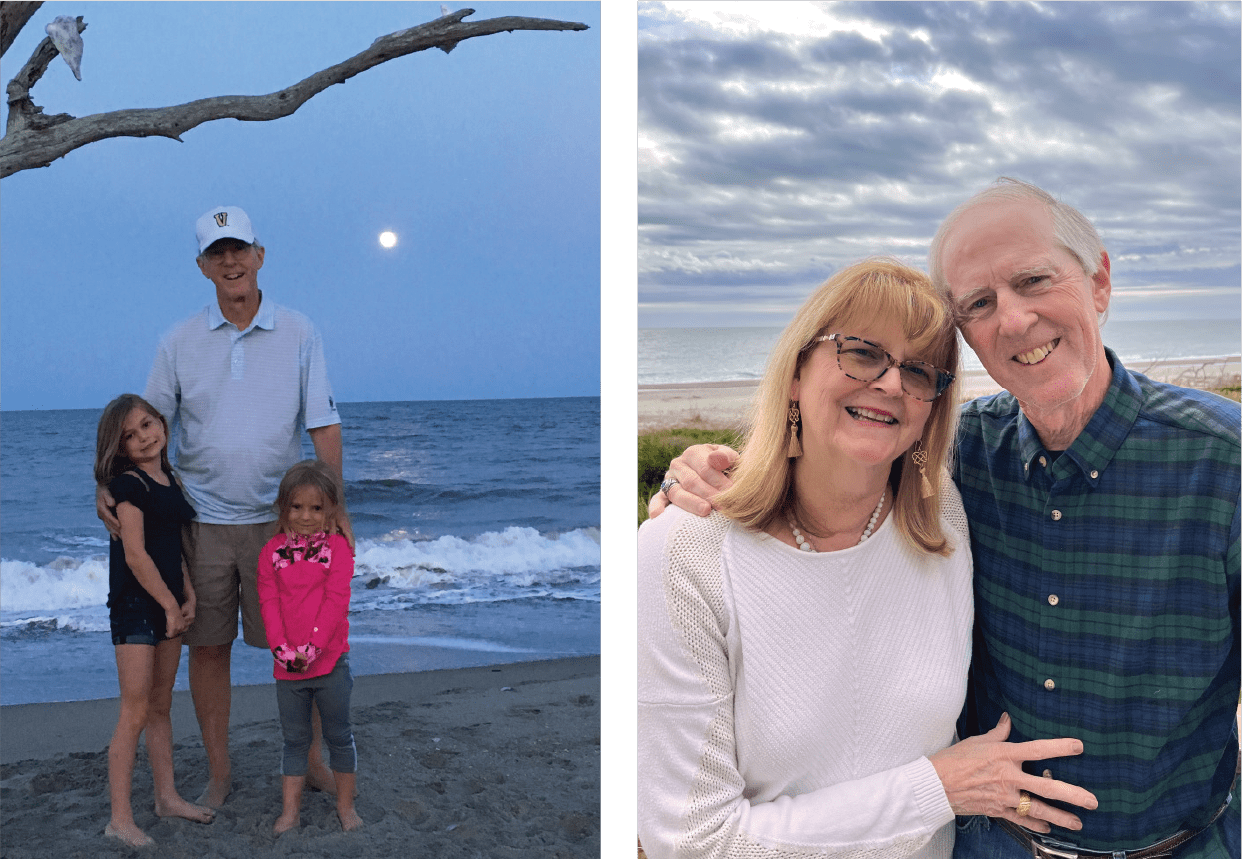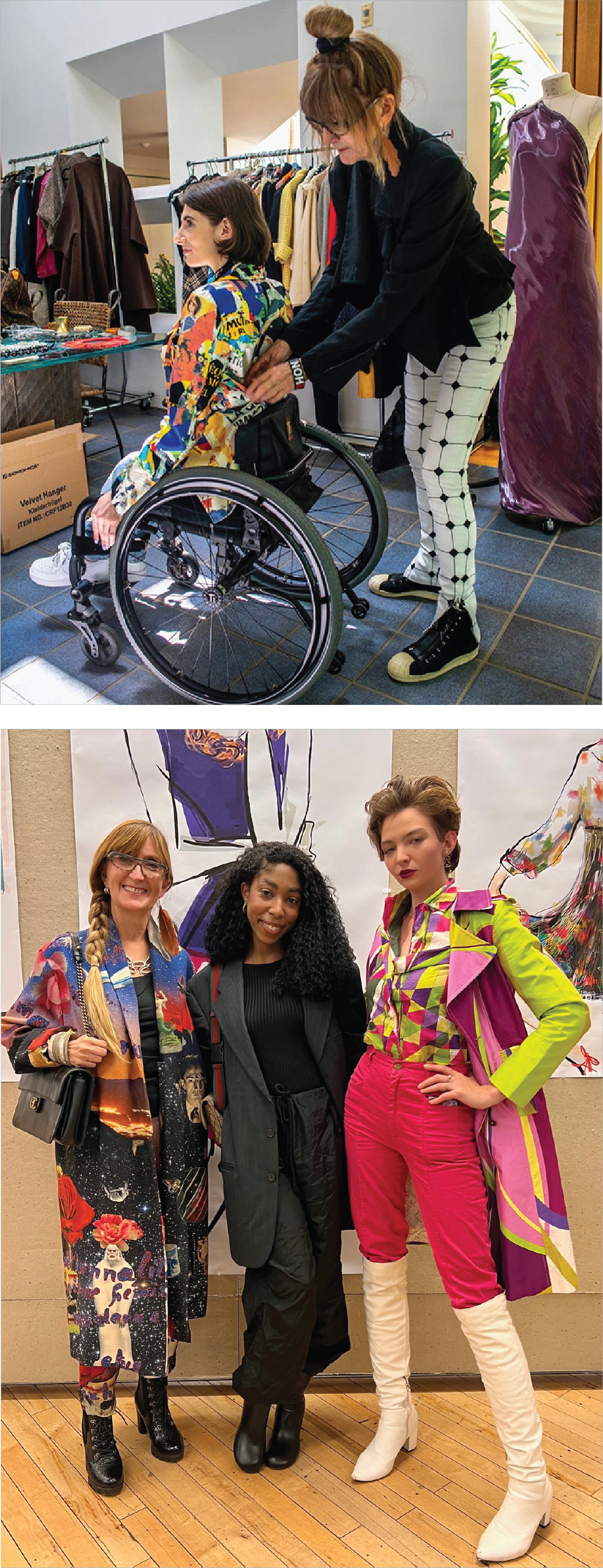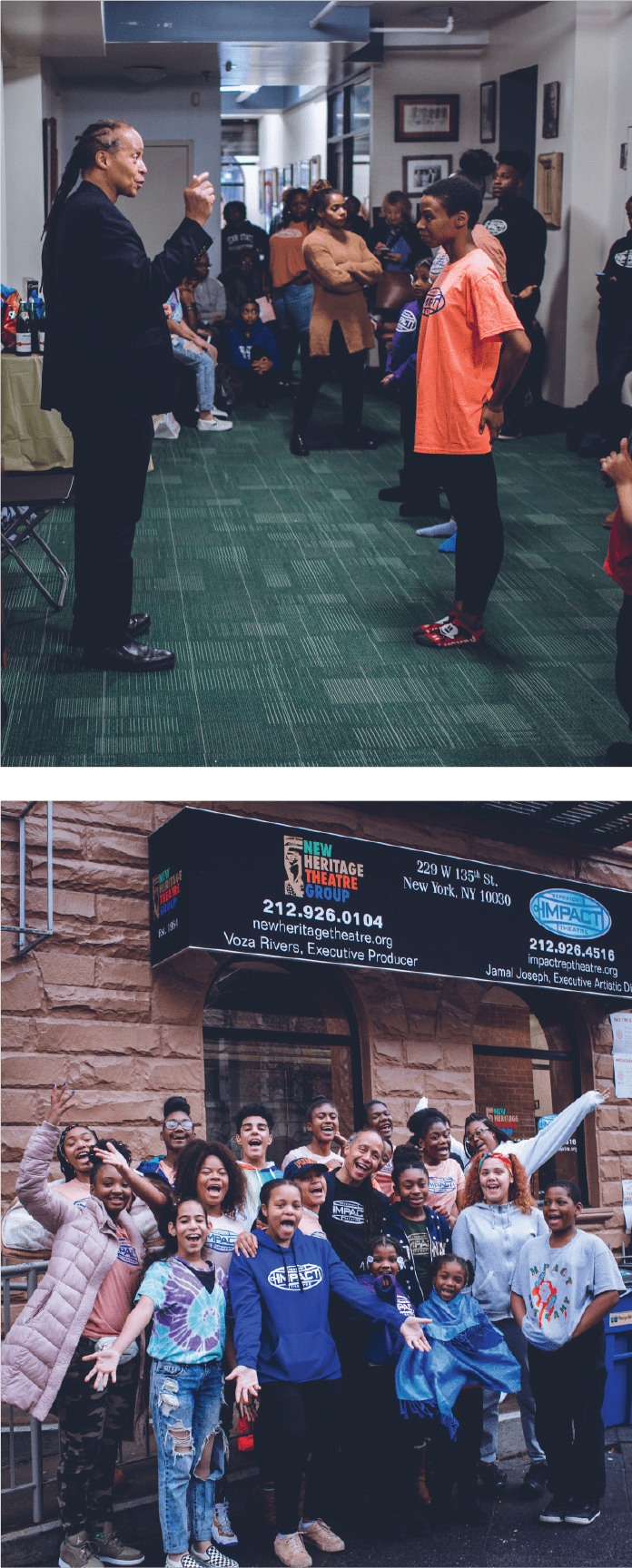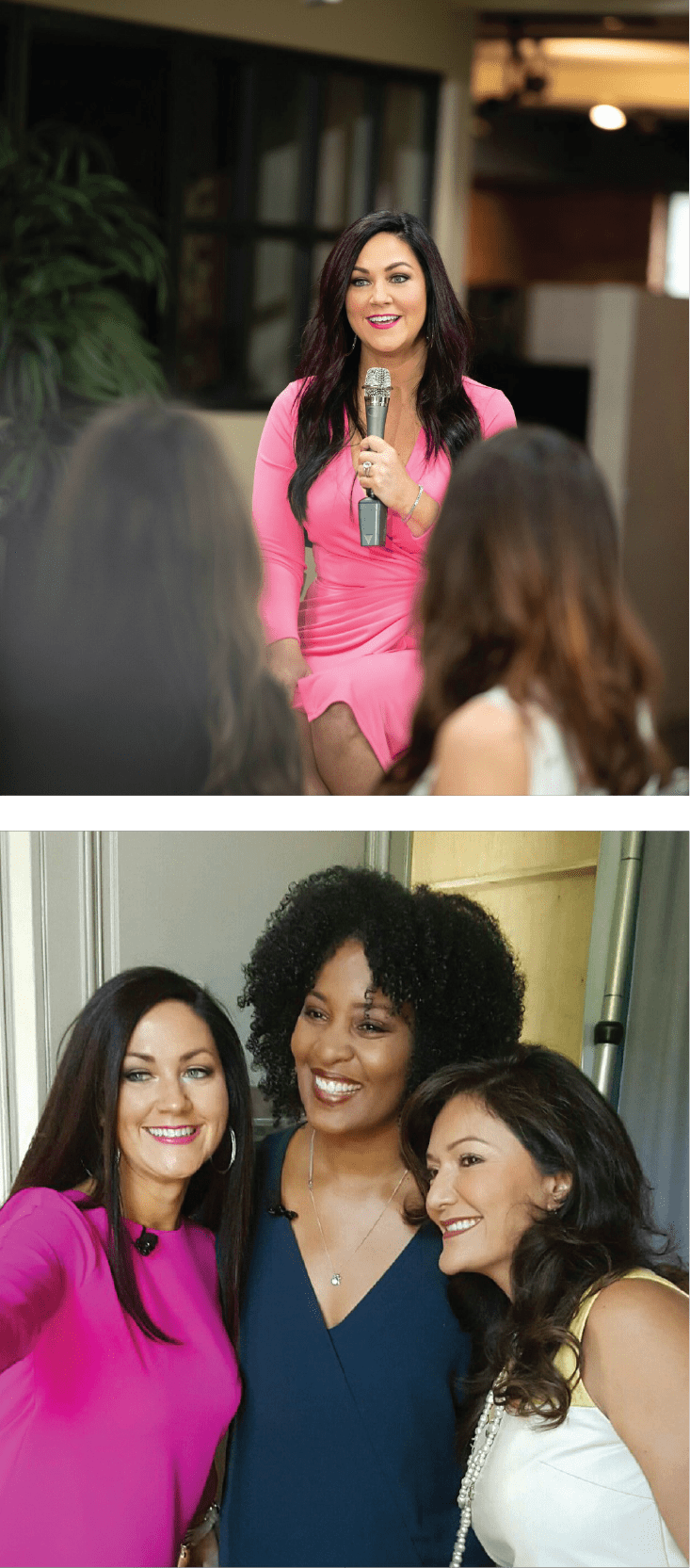25th Issue: Where Are They Now?
For this special edition, the VESTED team reconnected with four favorite Second Act heroes to hear what has changed for them since their cover stories, how the past few years have shifted their perspectives, and what they’re planning next.
Jim Morgan, Fall 2015
Serial CEO Jim Morgan, now 75, appeared on our cover in fall 2015, near the start of his second try at retirement. The first try didn’t go so well—a common theme among turnaround leaders like him, who often find themselves drawn back into the workforce.

After a long and impactful career in financial services, Morgan came out of retirement to work as CEO and board chair of Krispy Kreme. By all accounts, it was the right decision for both Morgan and the doughnut brand, but this second time, he wanted to make sure his retirement decision would stick.
To reset his habits after retiring from Krispy Kreme, Morgan instituted a self-imposed gap year, saying no to all recurring commitments that didn’t align with his top three priorities: faith, family, and friends. He says this gap year gave him time and permission to be more selective about what he said yes to.
“I get to pick and choose what I’m busy with and then go out there and try to make a difference,” says Morgan. “That’s why the time I took off was so helpful, because it made sure I didn’t rush into anything.”
Since then, he has stayed on a few corporate boards but spends most of his time volunteering at church and checking in with people he loves and admires. “I lead a young couples’ class at church, which is one of the great joys of my life now,” says Morgan. “And I spend a little of every day reaching out to some of the people who made a difference in my life.”
Sometimes, that means good friends or colleagues who shifted his trajectory. Other times, it might mean someone he met just a few times but who made a big impact. “It could be a schoolteacher or the widow of a friend or somebody I let go of at work but not in the right way,” says Morgan. “Contacting those people brings me all the joy in the world. It’s something I didn’t take the time to do often enough when I was working.”
Morgan and his wife, Peggy, also made the big decision to move away from Charlotte, North Carolina, landing on the South Carolina coast. “That was not an easy decision, to leave our church and our friends, but we felt called to a quieter place,” he says. Has it worked out as he expected? Yes and no.
“I came down here with the intention of being somewhat antisocial,” he says. “But I can’t help it! I meet people here, and the next thing I know, I’ve discovered that there are wonderful friends all around me. You meet some very special people just walking their dogs on the beach.”
Morgan says he’s still amazed at how busy retirement can be. “I don’t mean busy in a bad sense, but I’m surprised at how many opportunities come up to give you wonderful things to do.”
Retirement has helped him realign his passions with his calendar. “Time is too precious not to be passionate about what you’re doing,” he says. “But that doesn’t have to mean everything you do has to be something big.” For Morgan, walking on the beach at sunrise, spending a few hours volunteering at church, having dinner with his family, and taking time to write a thank-you card are all passion projects.
Nancy Volpe-Beringer, Fall 2020

“If I were young again, what would I want to learn?” That’s the question that launched Nancy Volpe-Beringer into a new career at almost 60, turning from education to the unknown world of fashion design. At face value, her story sounds like reinvention. But it’s more of an expansion—a way to grow outside the boundaries of her tried-and- true, familiar self.
“It’s not a second act. It’s a continuing act,” she says. “I really believe there’s a reason for everything. Everything I’ve done leads me to the next step.”
At 64, Volpe-Beringer made history on Bravo’s Project Runway as the oldest designer to compete in the reality TV series. Since then, she has founded an eponymous high-fashion brand (NVB), launched the world’s first luxury resale platform for people with disabilities, and earned high praise for her work in sustainable and adaptive fashion.
Her newest project—The Vault by Volpe-Beringer— is a pandemic brainchild. After a 2020 fire in the basement of her building rendered her homeless and displaced, Volpe-Beringer and her team found temporary studio space outside Philadelphia.
They moved her belongings, including her personal consignment collection, to the new space in trash bags. “I had so many clothes stored in closets,” she says. “It was like in a cartoon. You’d open a closet, and everything would fall out.”
Seeing her collection in a heap spawned an important aha moment. “I wanted to be an adaptive designer because I know what it feels like to be excluded, and people with disabilities are typically shut out of high fashion,” says Volpe-Beringer.
“One morning, we’re doing inventory, and I just thought, Why am I waiting? So I did the research, and nowhere in the world is there an online luxury consignment store that adapts for the disabled,” she says. “I thought, I’ll just start by selling my own clothes!” And the Vault was born.
Vault shoppers choose from couture items and then name the custom adaptations they want and need—a novel approach in an already creative industry.
So far, the platform has gained major accolades, including a 2022 Fashion Group International award for Rising Star New Retail Concept. And throughout New York Fashion Week, Volpe-Beringer, now 68, was featured on a Times Square billboard as one of 10 women entrepreneurs reshaping sustainable fashion, an experience she describes as humbling and surreal.
But those accolades haven’t translated to sales, which is frustrating for Volpe-Beringer. “Fortunately, because of my age and having some investments and my pension and a place to live, I can keep this going,” she says. “But I would like it to become financially sustainable.”
When asked what she’s planning for the next five years, Volpe-Beringer gives an unconventional answer: “I hope I get knocked off! I mean, I hope somebody copies my idea,” she says. “I want to be a voice in fashion for those who are not heard. But I don’t want to be the only voice. It’s time for more people to jump on board.”
Jamal Joseph, Winter 2019

In his 70 years, Jamal Joseph has earned more than a dozen remarkable titles, including poet, playwright, producer, teacher, activist, advocate, convict, father, husband, Black Panther, and Academy Award nominee. Now approaching his 25th year at Columbia University’s School of the Arts, he’s also the co-founder of IMPACT Repertory Theatre (IMPACT), a New York City community group of youth activists who use creative arts and leadership training to improve the world.
Since his Second Act story appeared in VESTED, Joseph says IMPACT has shifted how it thinks about and implements its body of work. “The pandemic meant we had to start pushing out more often into the community,” he says. “There were still in-person classes, but a lot of the work shifted to outreach in schools and community centers.” In addition to its usual leadership training, IMPACT teaches students how to improve their positive thinking skills.
Joseph believes in the power of positive thinking. “When times become uncertain or frightening, it’s even more necessary to make the choice to think positive, but that’s hard to do alone,” he says. “It’s hard enough when you have a group to turn to or a place like IMPACT where you can go two or three times a week. But when you’re in isolation with the uncertainty of the pandemic, you really need your positive posse around you to reinforce that you can make a choice to be happy.”
Joseph doesn’t just teach these skills; he practices them too, reminding himself that the law of conservation of energy is a scientific fact. Through it, we can reenergize ourselves by sharing energy with others.
“Energy can’t be destroyed. It can only be transformed,” says Joseph. “If we remember that, then even when negative energy comes our way, we have the ability—through positive thinking, through love, and through activism—to transform it. I tell the students: ‘When times get tough, keep a positive thought, because a positive thought cannot be denied.’”
What else is he working on outside of IMPACT? The list includes a TV show based on his autobiography, Panther Baby; a docuseries called Dear Mama about Afeni Shakur and her son, the rapper Tupac, who was Joseph’s godson; a documentary called Black Law, which looks at how the legal system has affected Black people, from enslavement to the installment of Supreme Court Justice Ketanji Brown Jackson; and another documentary that tells the story of the Greater Harlem Chamber of Commerce, in celebration of its 125th year.
In other words, he’s keeping busy but also making time for renewal. When he starts to feel depleted, Joseph says, he reminds himself to prioritize rest and dreams.
“Part of it is just getting extra sleep or taking that little bit of a power nap. When you close your eyes, take time to dream, by which I mean conscious dreaming,” he says. “Take time to remember all the great things that have happened. Remember all the possibilities. Remember that you’re not in it alone.”
Cindy Eckert, Fall 2018

Cindy Eckert is unapologetically and relentlessly for women. After fighting the Food and Drug Administration to approve what’s often called the female version of Viagra (Addyi), then selling her business for $1 billion and buying it back for next to nothing, Eckert says she “had a front-row lesson in what it means for women to advocate for themselves and each other.” Now she’s on a mission to make more women billionaires.
Through The Pink Ceiling, her venture capital fund, and the Pinkubator, her start-up incubator, Eckert leverages her expertise, money, and network to improve outcomes for other women founders. Two projects she has invested in recently include Bobbie, the only U.S.-made, European-style organic infant formula, and uMethod, the world’s first personalized prevention plan for Alzheimer’s and cognitive decline.
“What I want for all women, whether entrepreneurs or not, is prosperity on their own terms,” says Eckert. “The pandemic gave so many women this sense of if not now, when? My greatest joy in running the Pinkubator is that I get to see how many women left the workforce and started companies for themselves. Now, they have ownership of their own financial and personal freedom,” she says.
What’s changed for Eckert since her cover story in 2018 is that she has become more aware of—and intentional about—how she interacts with people. She’s become a better communicator, both personally and professionally.
“We went from having conversations about the business fundamentals to conversations about the emotional toll of building a business,” says Eckert. “I watched founders who were trying to keep teams together, keep culture intact, and raise money, and it forced me to have conversations I wouldn’t have had before about how founders are taking care of themselves and whom they can lean on in their networks.”
Eckert also noticed a trend among the most successful companies—something she calls customer and employee distancing. “So many companies blamed resource constraints and used them as an excuse to push people away,” she says. “But the winners on a go-forward basis will be the folks and businesses who recognize that connection is critical, whether that means connecting with your employees, your customers, your neighbors, or your friends.
“You can only win loyalty with attention, and ultimately, attention translates to sales and employee retention,” says Eckert.
How does she encourage people who want to start their own second acts? “I tell them, ‘The best bet you’ll ever make is on yourself,’” she says. “We often hesitate because we’re worried we will jeopardize all the things we’ve already earned. But that is your backup plan! Your backup plan is what you’re doing today! The greatest risk is not taking the risk and seeing what the upside potential might be.”